
THCA, or tetrahydrocannabinolic acid, is a non-psychoactive cannabinoid found naturally in raw cannabis plants that can be converted into psychoactive THC with heat. THCA infused edibles are gaining attention for their potential therapeutic benefits, including anti-inflammatory and neuroprotective properties, without inducing a high. These products are increasingly available for purchase as THCA infused edibles for sale, offering a range of health-focused effects that cater to consumers seeking wellness benefits. Unlike its psychoactive counterpart THC, THCA provides a milder experience and is subject to individual metabolism, which influences its conversion into THC. Consumers are advised to start with low doses and consider personal tolerance levels, as the effects can vary. It's important to purchase these products from reliable sources that comply with legal regulations to ensure quality, potency, and safety. Given the potential for side effects like dizziness or anxiety at higher doses, consumers should consult healthcare professionals, especially if they are taking other medications. The rise of THCA infused edibles represents a significant shift in the cannabis market, highlighting the nuanced differences between various cannabinoids and their diverse applications. Legal considerations are critical for both sellers and consumers to navigate the market responsibly, ensuring that all transactions adhere to state or local laws.
Exploring the complexities of THCA-infused edibles, this article delves into the multifaceted nature of tetrahydrocannabinolic acid (THCA), a non-psychoactive precursor to THC found in cannabis. With THCA infused edibles gaining popularity for both medicinal and recreational purposes, understanding their effects, potential side effects, and safe consumption practices is paramount. We’ll examine the science behind THCA’s therapeutic properties, compare it to other cannabinoids, and discuss legal considerations when sourcing these products. From dosing strategies to expert healthcare insights, this comprehensive guide aims to provide a clear overview of THCA’s role in the evolving cannabis industry and its implications for consumers seeking THCA infused edibles for sale.
- Understanding THCA Flower and Its Role in Cannabis
- The Rise of THCA Infused Edibles in the Market
- Potential Side Effects of THCA Infused Edibles
- Dosing and Tolerance: Key Factors in Experiencing THCA Effects
- Comparing THCA to Other Cannabinoids: What Sets It Apart?
- Legal Considerations When Purchasing THCA Infused Edibles for Sale
Understanding THCA Flower and Its Role in Cannabis
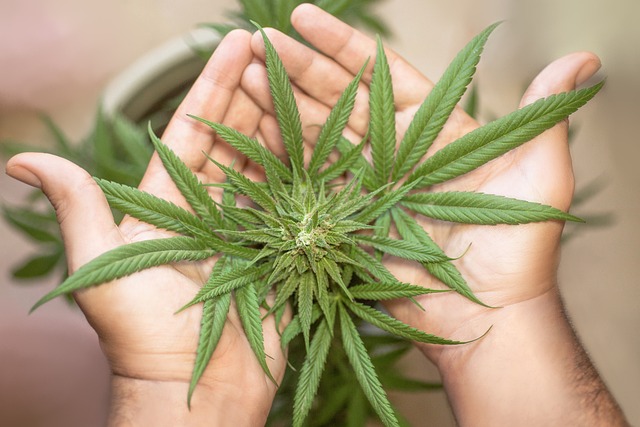
THCA, or tetrahydrocannabinolic acid, is a non-psychoactive cannabinoid found in raw cannabis plants, which, when heated, converts into the more well-known psychoactive compound THC. As interest in the potential health benefits of cannabinoids grows, THCA infused edibles for sale have become increasingly available to consumers seeking alternatives to traditional smoked cannabis products. These edibles offer a unique experience as they contain the raw acidic form of THC, which some believe may provide therapeutic effects without the typical high associated with its decarboxylated counterpart.
The role of THCA in the cannabis plant is multifaceted. Research suggests that THCA may interact with the body’s endocannabinoid system, potentially offering a range of benefits from anti-inflammatory to neuroprotective effects. Unlike its psychoactive derivative, THC, THCA does not bind directly to the cannabinoid receptors CB1 and CB2 in the same way, which may explain why it doesn’t produce psychoactive effects. However, it is believed to influence other receptors and enzymes within the body that could impact various physiological functions. As a result, THCA infused edibles for sale are becoming a popular choice for those looking to explore the potential wellness benefits of cannabinoids without the mind-altering impact of THC. Consumers interested in these products should seek out reputable sources and adhere to dosage guidelines to ensure a safe and effective experience.
The Rise of THCA Infused Edibles in the Market
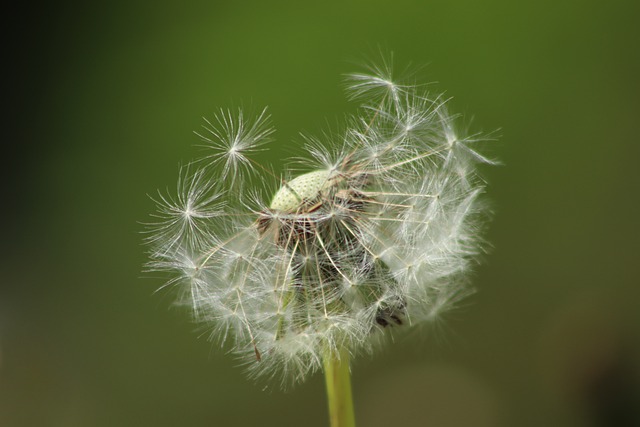
The cannabinoid landscape has seen a significant evolution with the emergence of THCA infused edibles, which are gaining popularity among consumers for their potential therapeutic and psychoactive effects. Unlike its psychoactive counterpart THC, THCA is non-psychoactive, offering a unique experience that appeals to a broad audience seeking the benefits of cannabis without the intense high traditionally associated with THC products. As a result, THCA infused edibles for sale have become a staple in many dispensaries across legalized regions, catering to those looking for relief from various conditions such as pain and inflammation, nausea, and loss of appetite, without the impairment that comes with other cannabis products. These edibles are crafted using advanced extraction techniques to preserve the THCA in its natural, un-decarboxylated state, ensuring consumers experience the full spectrum of its potential wellness effects. The rise in demand for these products has led to an influx of companies producing THCA infused edibles, which include gummies, chocolates, and baked goods, all designed to meet the diverse preferences of consumers. As the market continues to expand, it’s clear that THCA infused edibles are not just a passing trend but a significant shift in the cannabis industry, offering a new frontier for both wellness and recreational use.
Potential Side Effects of THCA Infused Edibles

THCA, or tetrahydrocannabinolic acid, is a non-psychoactive cannabinoid found in raw cannabis plants that is believed to convert into THC, the primary psychoactive component of cannabis, once heated. When THCA is infused into edibles, it offers potential therapeutic benefits without the immediate high associated with THC. However, consumers should be aware of the potential side effects associated with consuming THCA infused edibles. These can include mild psychoactive effects, especially in higher doses, as some individuals may experience a mild euphoria or altered perception due to the conversion of THCA to THC within their bodies. Common side effects, particularly at high doses, may include dizziness, lethargy, and anxiety. It is crucial for consumers to start with low dosages to gauge individual sensitivity and avoid adverse reactions. Additionally, because THCA infused edibles are becoming more readily available for sale, it is important for potential users to purchase from reputable sources to ensure the product’s quality, potency, and safety. Users should also be cognizant of their overall health and consult with a healthcare professional before incorporating these products into their regimen, as interactions with other medications can occur.
Dosing and Tolerance: Key Factors in Experiencing THCA Effects
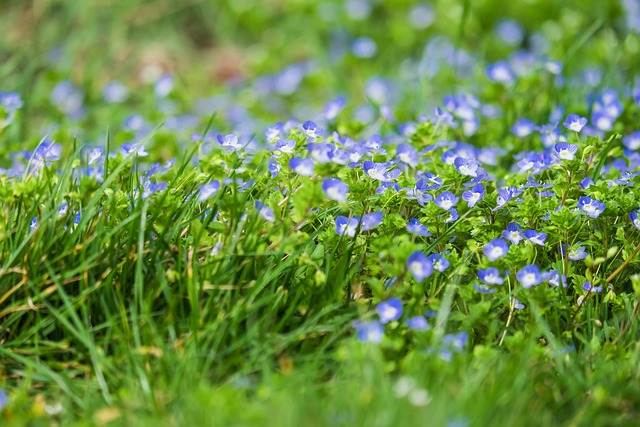
When exploring the effects of THCA flower, understanding dosing and individual tolerance is paramount. Unlike its psychoactive counterpart THC, THCA-A (the acidic form of THC) found in raw cannabis or THCA infused edibles for sale, interacts with the body differently, offering potential therapeutic benefits without the high associated with THC. Dosing THCA is a nuanced process, as it must be converted into THC by the body’s endocannabinoid system to produce effects. This conversion rate can vary significantly between individuals, influenced by factors such as metabolism and the presence of other cannabinoids.
Tolerance plays a crucial role in how one experiences THCA effects. Regular consumers of THCA infused edibles for sale may develop a higher tolerance, requiring larger doses to feel the desired impact. Conversely, those new to cannabinoid consumption might experience stronger effects at lower dosages due to their lower tolerance levels. It’s essential for individuals to start with low doses of THCA and increase gradually, allowing their bodies to adjust and to gauge their personal sensitivity. This approach ensures a safer and more controlled experience with THCA infused edibles for sale, helping to minimize potential side effects and maximize the therapeutic benefits. As always, it’s advisable to consult with a healthcare professional before incorporating THCA into one’s wellness regimen, especially if combining with other medications or treatments.
Comparing THCA to Other Cannabinoids: What Sets It Apart?
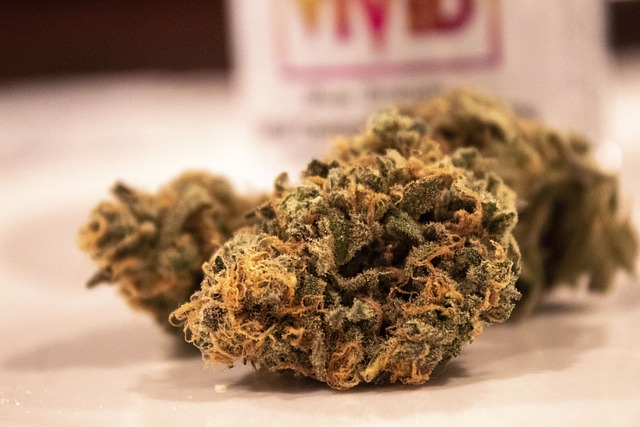
Tetrahydrocannabinolic acid (THCA) is a natural cannabinoid found in the Cannabis sativa plant, which has garnered attention for its potential therapeutic properties. Unlike its well-known counterpart, delta-9-tetrahydrocannabinol (THC), THCA does not possess psychoactive effects. This distinction is significant for those seeking the benefits of cannabis without the high associated with THC. When heated or decarboxylated, THCA converts to THC, which is the cannabinoid most commonly found in cannabis products. However, THCA infused edibles offer a unique advantage as they can be consumed without undergoing this transformation, providing a distinct experience from THC-containing products.
The effects of THCA are reported to be broad-ranging and potentially beneficial for various health conditions. Research suggests that THCA may have anti-inflammatory, anti-nausea, anti-emetic (anti-vomiting), and neuroprotective properties. These attributes set THCA apart from other cannabinoids like CBD (cannabidiol), which is also renowned for its health benefits but does not have the same potential for psychoactive effects as THC. The availability of THCA infused edibles for sale is indicative of a growing market that caters to consumers interested in exploring the unique therapeutic profile of THCA without the intoxicating effects of THC. As the cannabis industry continues to evolve, the distinction between these cannabinoids becomes increasingly relevant, with THCA-focused products offering a new frontier for wellness and health.
Legal Considerations When Purchasing THCA Infused Edibles for Sale
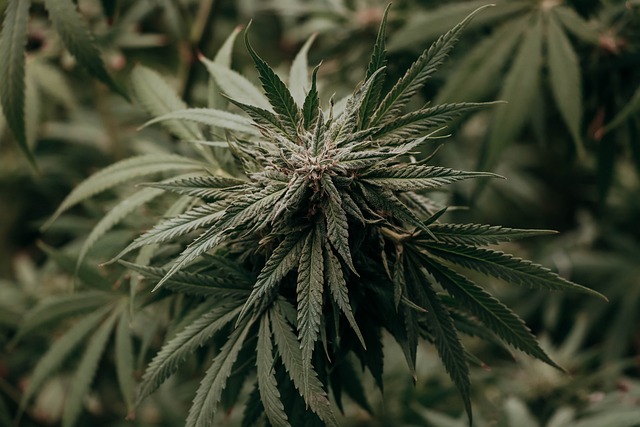
When considering the purchase and sale of THCA infused edibles, it’s crucial to be well-versed in the legal landscape governing such products. The legal status of THCA, which is the raw form of THC found in cannabis plants, varies by jurisdiction. In some regions, THCA may be legally sold as an edible product, provided it complies with state or local regulations, including licensing requirements and labeling guidelines that detail potency and potential allergens. Retailers looking to offer THCA infused edibles for sale must navigate these laws carefully to avoid legal repercussions. They must ensure they are sourcing their products from licensed producers and maintaining strict inventory controls. Additionally, understanding the nuances of each region’s laws, including both state and federal regulations if applicable, is essential for compliance. This includes keeping abreast of any changes in legislation that could affect the legality of THCA edibles within a particular market. For those interested in purchasing THCA infused edibles, due diligence is required to confirm the product’s legal status and the vendor’s compliance with all relevant laws and regulations. This due diligence not only ensures a legitimate transaction but also protects consumers from potential harm associated with unregulated or illegal products. Always prioritize purchasing THCA infused edibles from reputable sources that provide transparent information about their sourcing, production methods, and adherence to legal standards.
consumers should approach THCA infused edibles with informed consideration, recognizing both their potential benefits and the possibility of side effects. As detailed in this article, understanding dosing and individual tolerance is crucial when incorporating these products into one’s wellness routine. Compared to other cannabinoids, THCA offers a unique profile that may differ significantly in its effects. Prospective users should navigate the legal landscape carefully when considering THCA infused edibles for sale, ensuring compliance with local regulations. By doing so, consumers can make educated decisions about incorporating this cannabinoid into their lifestyle, balancing its advantages with an awareness of its side effects.







